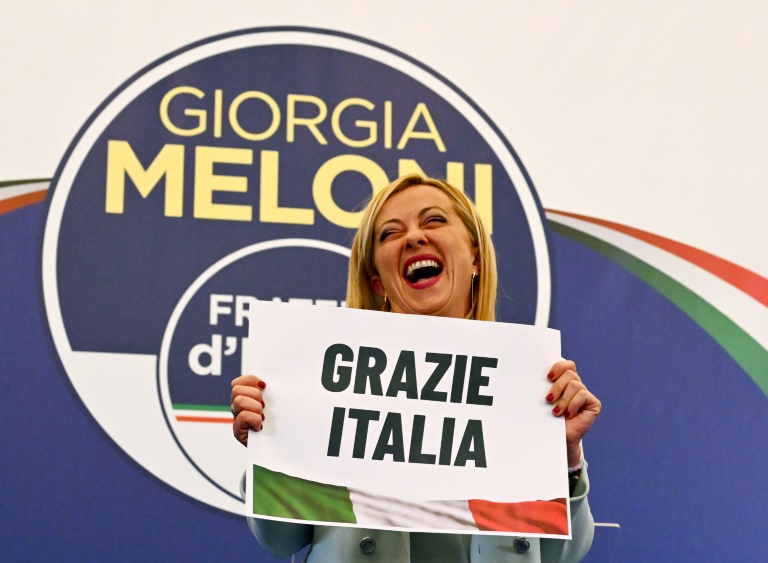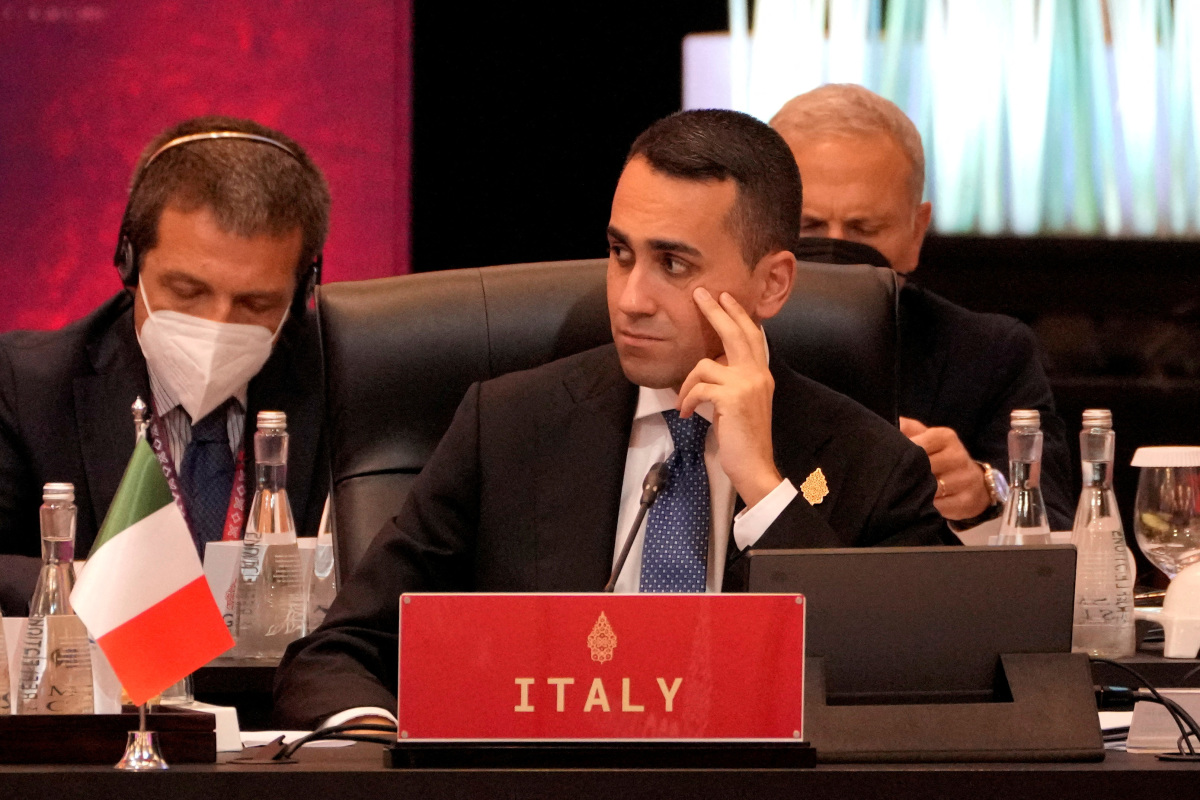Italian far-right leader Giorgia Meloni and her allies began Tuesday what is likely to be a weeks-long process of forming a new government, with crises looming on several fronts.
Meloni’s post-fascist Brothers of Italy party, which triumphed in Sunday’s elections, has no experience of power but must assemble a cross-party team to tackle sky-high inflation and energy prices, and relations with a wary Europe.
The 45-year-old is hoping to be the first woman to lead Italy as prime minister, but needs her allies, Matteo Salvini’s far-right League party and former Silvio Berlusconi’s Forza Italia, for a majority in parliament.
The division of the top jobs — notably economy, foreign affairs, the defence and interior ministries — will always be political but now, more than ever, “will have to reflect areas of expertise”, the Stampa daily noted.
In the past, it has taken anything between four and 12 weeks for a new administration to take office.
But the first deadline for action is coming up fast, with debt-laden Italy due to submit its draft plan for next year’s budget to Brussels by October 15.
President Sergio Mattarella will begin consultations on who should lead the new government only once the Senate and Chamber presidents have been elected by parliament, which meets on October 13.
With families and businesses struggling with huge bills aggravated by the Ukraine war, sorting out the budget will be “like scaling Everest without oxygen tanks for the new cabinet”, the Corriere della Sera daily said.
Meloni sought to reassure investors during the election campaign that, despite her radical past, she will be a safe pair of hands.
But the Italian ten-year bond rate increased to its highest level since October 2013 on Tuesday morning.
And the gap between German and Italian interest rates, the closely watched spread, rose above 250 points for the first time since the depths of the coronavirus pandemic in spring 2020.
The European Commission was set to approve Tuesday the second instalment of post-pandemic recovery funds to Italy, worth 21 billion euros, a government source said.
But Meloni has said she wants to renegotiate the deal with Brussels, potentially putting the rest of the fund — worth a total of almost 200 billion euros — at risk.
Agnese Ortolani, senior Europe analyst at the Economist Intelligence Unit, said she expected Meloni “to continue to reassure the markets by picking a non-controversial figure for the role of finance minister”.
“She will also want to avoid reputational damage by nominating someone who is not perceived as credible by the markets,” she said in a note.
Meloni’s allies have been pitching for heavy-weight positions, Salvini wanting his old job as interior minister back, and Berlusconi eyeing president of the Senate.
Their disappointing performance in the polls, however, with neither reaching 10 percent while Brothers of Italy’s secured 26 percent, means Meloni may already be planning to sideline them.
Salvini and Berlusconi do not see eye-to-eye with Meloni on several fronts, including on sending weapons to Ukraine.
With all the potential friction ahead, winning the elections “was almost the easy part”, commented Luciano Fontana, chief editor of the Corriere della Sera daily.
Berlusconi downplayed concerns he would rock the boat Tuesday, saying his party was ready to make compromises “in the country’s interests”.
His ally Antonio Tajani, a former European parliament president, is tipped as possible foreign minister, an appointment which could both appease Berlusconi and assuage international fears that Meloni’s Eurosceptic populist party plans to pick fights with Brussels.
Salvini, 49, may prove more difficult. He is currently on trial for allegedly abusing his powers as interior minister in 2019 to block migrants at sea, which could rule him out returning to the job.
“Defusing Salvini” without sparking a backlash that could seriously weaken the nascent executive is “Meloni’s first test”, the Repubblica daily said.







